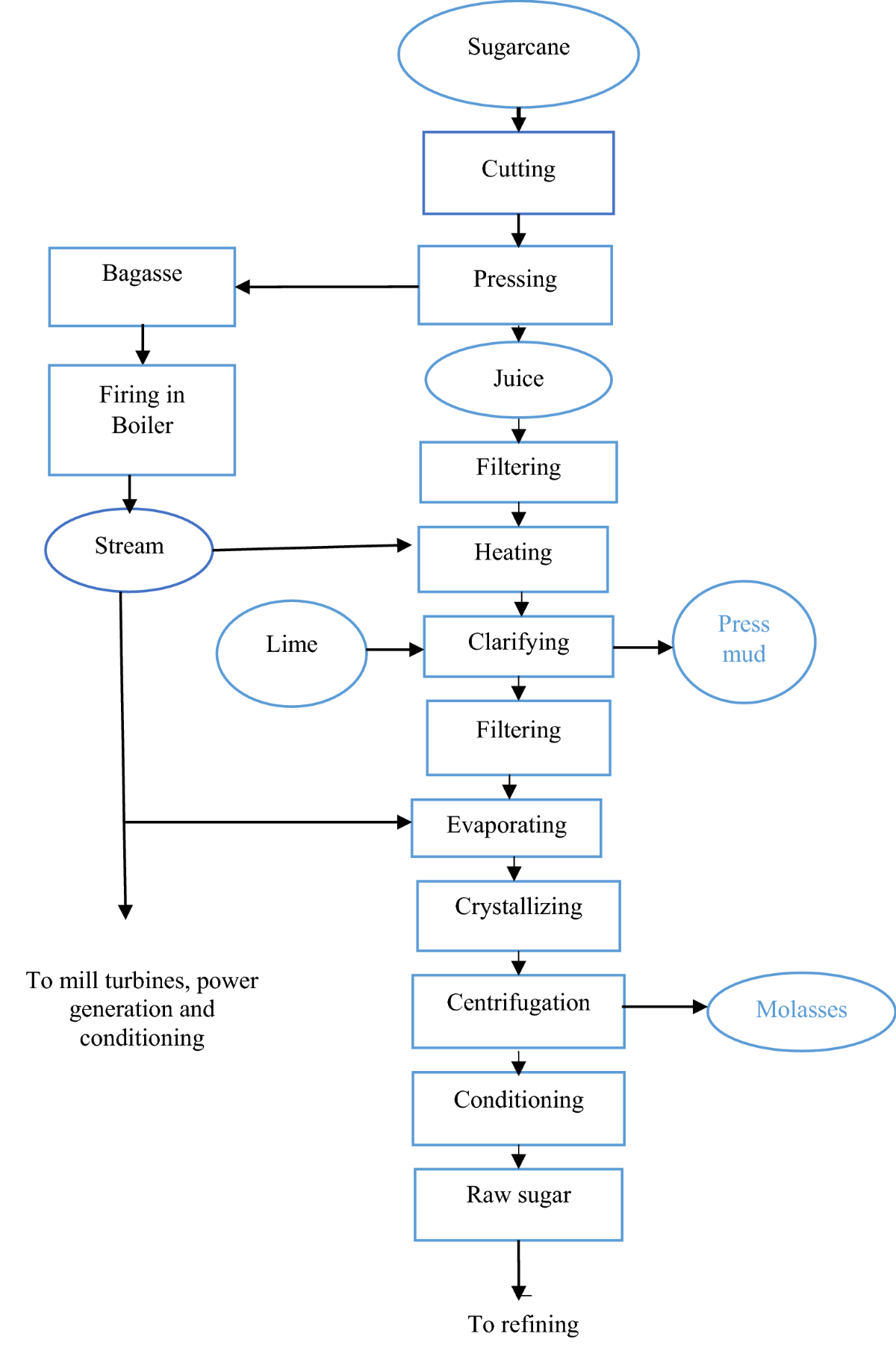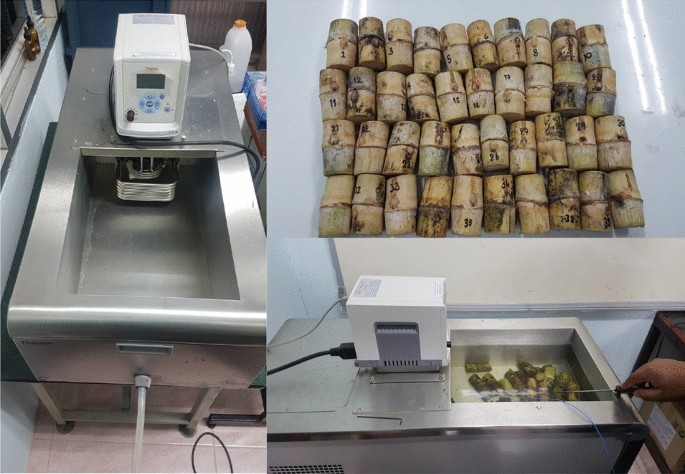Eco-Friendly Gift Ideas Featuring Products From Sugarcane
Eco-Friendly Gift Ideas Featuring Products From Sugarcane
Blog Article
Discover the Innovative Benefits of Products From Sugarcane for Sustainable Living
Sugarcane has emerged as a critical resource in the mission for lasting living. Its varied applications cover biodegradable packaging, renewable energy, and healthier food alternatives. As sectors look for eco-friendly alternatives, sugarcane's versatility supplies promising solutions. The real capacity of sugarcane extends past its current usages. Exploring its cutting-edge benefits could disclose brand-new pathways towards an extra sustainable future. What other possibilities might this amazing plant hold?

The Rise of Sugarcane as a Lasting Resource
As international understanding of environmental concerns grows, sugarcane has actually become a famous sustainable source. This versatile plant supplies an array of benefits that add to green methods. Sugarcane is an eco-friendly resource, efficient in thriving in varied environments while absorbing co2, consequently mitigating greenhouse gas discharges. Its rapid growth cycle enables frequent harvesting, resulting in a constant supply of raw material.Additionally, sugarcane farming frequently calls for less water compared to other crops, making it an efficient option in water-scarce areas. The byproducts of sugarcane, such as bagasse and molasses, can be repurposed for numerous applications, reducing waste and advertising round economy principles. Developments in farming methods have led to more lasting farming techniques, better improving sugarcane's environmental account. As consumers progressively seek lasting choices, sugarcane attracts attention as a viable option for those dedicated to decreasing their ecological footprint.
Biodegradable Packaging Solutions
Exactly how can naturally degradable product packaging services transform the method consumers approach sustainability? By making use of sugarcane-based materials, these cutting-edge solutions offer an engaging option to standard plastics. Eco-friendly product packaging made from sugarcane disintegrates naturally, noticeably lowering landfill waste and greenhouse gas exhausts. As consumers become significantly mindful of their environmental impact, the need for sustainable product packaging proceeds to rise.These sugarcane-derived products not just serve practical objectives however additionally straighten with eco-conscious consumer values. They offer a substantial method for people and companies to add to a circular economy, advertising resource performance and minimizing environmental impacts. In addition, as industries take on eco-friendly choices, they foster a society of sustainability that resonates with an expanding group seeking liable choices.In essence, eco-friendly product packaging solutions from sugarcane stand for a crucial advance in lasting methods, equipping customers to make environmentally friendly choices without sacrificing ease or quality.
Renewable Power Generation From Sugarcane
A significant portion of renewable resource generation can be stemmed from sugarcane, showcasing its convenience beyond conventional farming usages. Sugarcane biomass, consisting of bagasse and leaves, is a potent source for bioenergy production. This biomass can be transformed right into biofuels such as ethanol, which works as a cleaner alternative to nonrenewable fuel sources. Furthermore, the burning of sugarcane results generates heavy steam and electrical energy, offering a power resource for sugar mills and neighboring communities.The cultivation of sugarcane also contributes to carbon sequestration, as the plants absorb carbon dioxide during their growth cycle. By using sugarcane for power, waste is minimized, and sustainable methods are encouraged. This renewable resource technique not just supports power demands but likewise promotes country development, producing work in bioenergy fields. Generally, sugarcane sticks out as a vital player in the shift to sustainable power remedies, straightening with worldwide efforts to decrease carbon footprints.

Eco-Friendly Textiles and Fabrics
Green fabrics and textiles obtained from sugarcane present an encouraging alternative to traditional products. These naturally degradable alternatives not just reduce ecological effect but additionally provide durability and efficiency comparable to standard fabrics. Lasting production procedures even more boost their charm, making them an indispensable part of a lasting way of living.
Naturally Degradable Textile Alternatives
Why is the adjustment towards biodegradable textile choices vital for lasting living? The boosting awareness of ecological deterioration has actually triggered a look for options to conventional fabrics, which often add to pollution and waste. Biodegradable materials, originated from renewable energies such as sugarcane, provide a promising solution. These products disintegrate naturally, decreasing land fill accumulation and reducing environmental effect. Furthermore, they can aid lower carbon footprints and reliance on fossil gas. As customers come to be a lot more eco-conscious, the need for lasting fabrics expands, encouraging makers to introduce and spend in biodegradable alternatives. This change not just sustains lasting practices yet additionally cultivates a round economy, paving the means for an extra liable strategy to style and fabric manufacturing.
Toughness and Efficiency
Sturdiness and performance are essential variables when evaluating environment-friendly fabrics and materials. Sugarcane-derived materials demonstrate excellent stamina and resilience, making them ideal for different applications. These textiles commonly display exceptional moisture-wicking buildings, which boost comfort in everyday wear. Additionally, their all-natural fibers add to breathability, guaranteeing that garments remain fresh and wearable even popular conditions. The efficiency of sugarcane-based materials encompasses their resistance to damage, enabling items to maintain their stability with time. Moreover, these environmentally friendly fabrics can be dealt with to improve UV protection and discolor resistance, meeting the functional demands of customers without compromising sustainability. Eventually, sugarcane textiles provide a harmonious balance of toughness and performance, appealing to eco conscious people.
Lasting Production Procedures
The remarkable toughness and performance of sugarcane-derived fabrics are complemented by sustainable manufacturing procedures that focus on ecological responsibility. These procedures make use of renewable resources, reducing reliance on fossil gas and decreasing carbon footprints. By taking advantage of the byproducts of sugarcane farming, suppliers can create environmentally friendly materials while promoting waste reduction. Advanced techniques, such as water-efficient dyeing and biodegradable treatments, additionally improve the sustainability of these textiles. Furthermore, the usage of safe chemicals try here assurances that the production process does not harm ecosystems or human health. This commitment to sustainability not only interest ecologically mindful consumers but likewise supports local economic climates by promoting sustainable farming practices. Overall, sugarcane-derived fabrics represent a considerable step in the direction of a greener future in the apparel industry.
Sugarcane-Based Biofuels and Their Effect

Sugarcane-based biofuels have actually emerged as a considerable alternative energy source, offering an eco-friendly option to the globe's expanding power demands. These biofuels, originated from the fermentation of sugarcane juice or molasses, present an even more lasting alternative compared to nonrenewable fuel sources. Their manufacturing process creates lower greenhouse gas exhausts, adding to environment change reduction efforts.Additionally, sugarcane biofuels can improve power safety by branching out power sources and reducing reliance on imported oil. The farming of sugarcane likewise advertises rural advancement, developing jobs and promoting local economies.However, worries regarding land use and food competitors persist, as increased biofuel manufacturing might impact food supply chains. Sustainable farming techniques are important to balancing these contending interests and making certain that biofuel manufacturing does not threaten food safety and security. On the whole, sugarcane-based biofuels represent an encouraging method for a greener power future, supplied that their social and ecological implications are thoroughly taken care of.
Much Healthier Alternatives: Sugarcane in Food Products
While several customers look for much healthier options in their diets, sugarcane products provide a nourishing choice to improved sugars and artificial sweeteners. Stemmed from the natural removal of sugarcane juice, these products keep crucial nutrients, consisting of nutrients, that are often lost in refined sugars. Sugarcane has antioxidants and dietary fiber, adding to total health and wellness.Many health-conscious individuals are turning to sugarcane syrup and jaggery, which supply a reduced glycemic index compared to traditional sugars, making them appropriate for those managing blood glucose degrees. In addition, sugarcane-derived sweeteners can boost the taste of different meals without the unfavorable impacts associated with fabricated additives.This change in the direction of natural artificial sweetener not just advertises much better dietary selections but likewise aligns with sustainable living methods, as sugarcane is a renewable energy. Sugarcane products are arising as positive options in the domain of food products.
The Future of Sugarcane in Lasting Developments
The future of sugarcane is positioned to incorporate cutting-edge applications that prolong beyond conventional uses. Its potential as a source for biodegradable product packaging options and eco-friendly power resources highlights its duty in lasting practices. Discovering these improvements could significantly impact environmental preservation and resource administration.
Eco-friendly Packaging Solutions
An increasing number of business this are turning to eco-friendly packaging remedies originated from sugarcane as an encouraging option to traditional plastics. These ingenious products, typically made from sugarcane fibers and bioplastics, decay naturally, minimizing the long-lasting ecological impact connected with standard plastic waste. By using renewable energies, sugarcane-based packaging adds to an extra sustainable manufacturing cycle, aligning with global efforts to deal with air pollution and environment adjustment. In addition, these options usually maintain the durability and capability needed for numerous applications, from food containers to delivery products. As consumer need for environmentally friendly choices grows, businesses taking on sugarcane packaging not just improve their brand name image however also play a pivotal function in cultivating a circular economic situation, leading the way for a greener future.
Renewable Resource Sources
Biodegradable packaging services are just one aspect of the broader potential of sugarcane in advertising sustainability. Another significant application hinges on renewable resource resources. Sugarcane is a flexible crop that can be utilized to generate biofuels, such as ethanol, which works as a cleaner alternative to fossil fuels. The fermentation procedure of sugarcane juice returns ethanol that can power cars and generate electrical power. Furthermore, the byproducts of sugarcane handling, like bagasse, can be utilized to produce biomass energy, using a sustainable and efficient method to harness energy. This dual role as both a resource of biofuel and biomass highlights sugarcane's capacity in minimizing carbon emissions and sustaining a change to an extra sustainable power landscape in the future.
Frequently Asked Inquiries
Exactly How Is Sugarcane Harvested Sustainably?
Sugarcane harvesting can be lasting through methods like manual cutting, which decreases dirt disruption, and using machinery that decreases fuel consumption (Products From Sugarcane). Plant rotation and incorporated insect administration better enhance ecological wellness and promote long-lasting soil fertility
What Are the Environmental Influences of Sugarcane Farming?

Can Sugarcane Products Be Reused?
The question of whether sugarcane products can be recycled reveals a positive outlook. Lots of sugarcane-derived products, such as bioplastics and product packaging, are made for recyclability, adding to a more sustainable waste monitoring approach within environmental considerations.
Are There Any Disadvantages to Utilizing Sugarcane-Based Products?
The disadvantages of utilizing sugarcane-based products include potential land usage competition with food crops, obstacles in large manufacturing, and worries regarding the ecological influence of monoculture farming methods, which can decrease biodiversity and soil health and wellness.
How Does Sugarcane Growing Affect Local Communities?
Sugarcane growing influences local areas by supplying employment possibility and improving regional economic climates. It can likewise lead to land disputes and ecological worries, impacting farming practices and area health, demanding a balanced method to growth. Innovations in farming methods have led to even more sustainable farming methods, further improving sugarcane's environmental account. Additionally, the combustion of sugarcane byproducts creates steam and electricity, supplying a power source for sugar mills and nearby communities.The growing of sugarcane additionally contributes to carbon sequestration, as the plants soak up carbon dioxide during their growth cycle. By making use of sugarcane for energy, waste is lessened, and lasting practices are encouraged - Products From Sugarcane. Sugarcane my sources has antioxidants and nutritional fiber, adding to general wellness and wellness.Many health-conscious people are transforming to sugarcane syrup and jaggery, which offer a reduced glycemic index contrasted to conventional sugars, making them appropriate for those taking care of blood sugar degrees. In addition, the byproducts of sugarcane processing, like bagasse, can be utilized to generate biomass power, using a reliable and sustainable approach to harness energy
Report this page